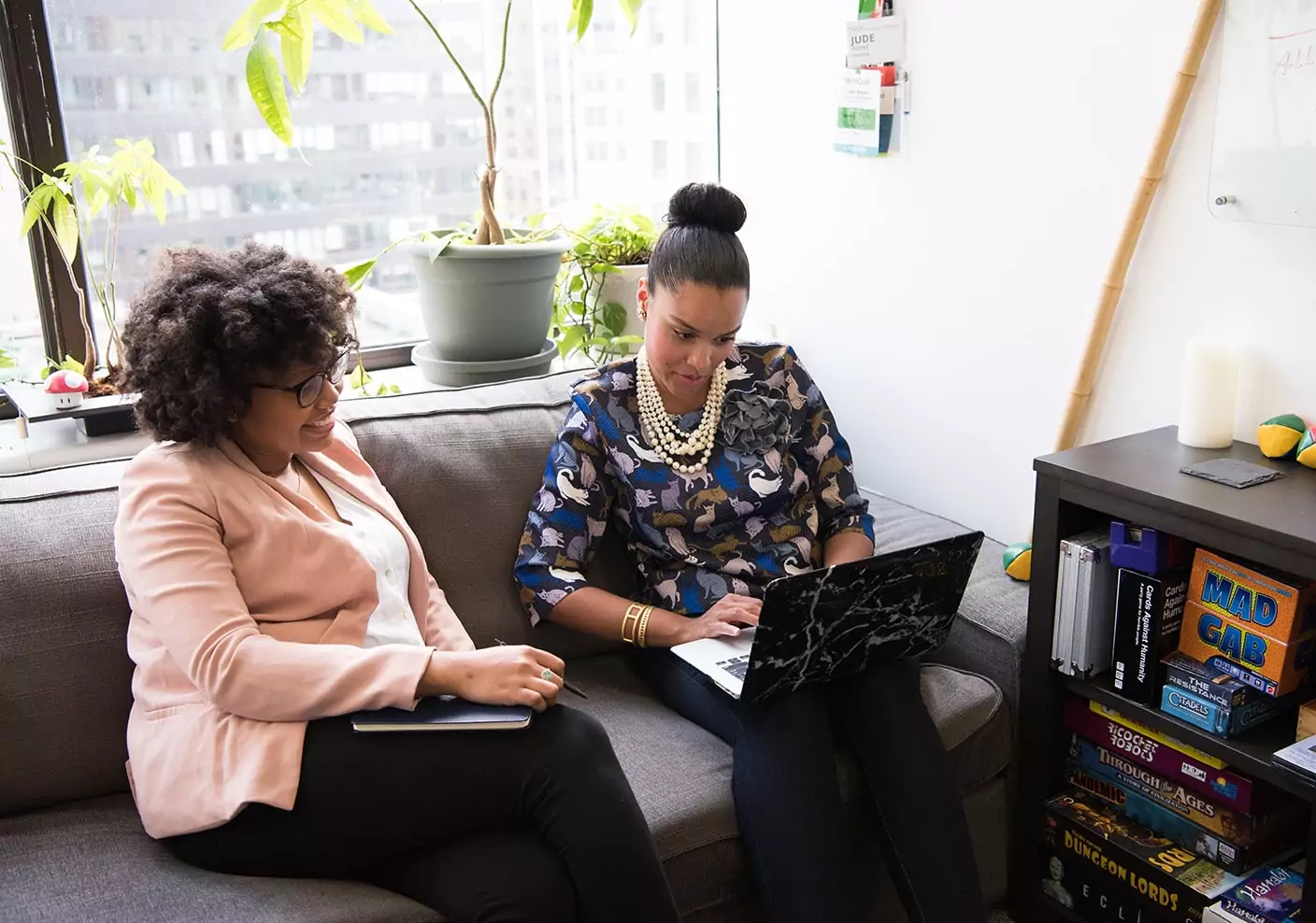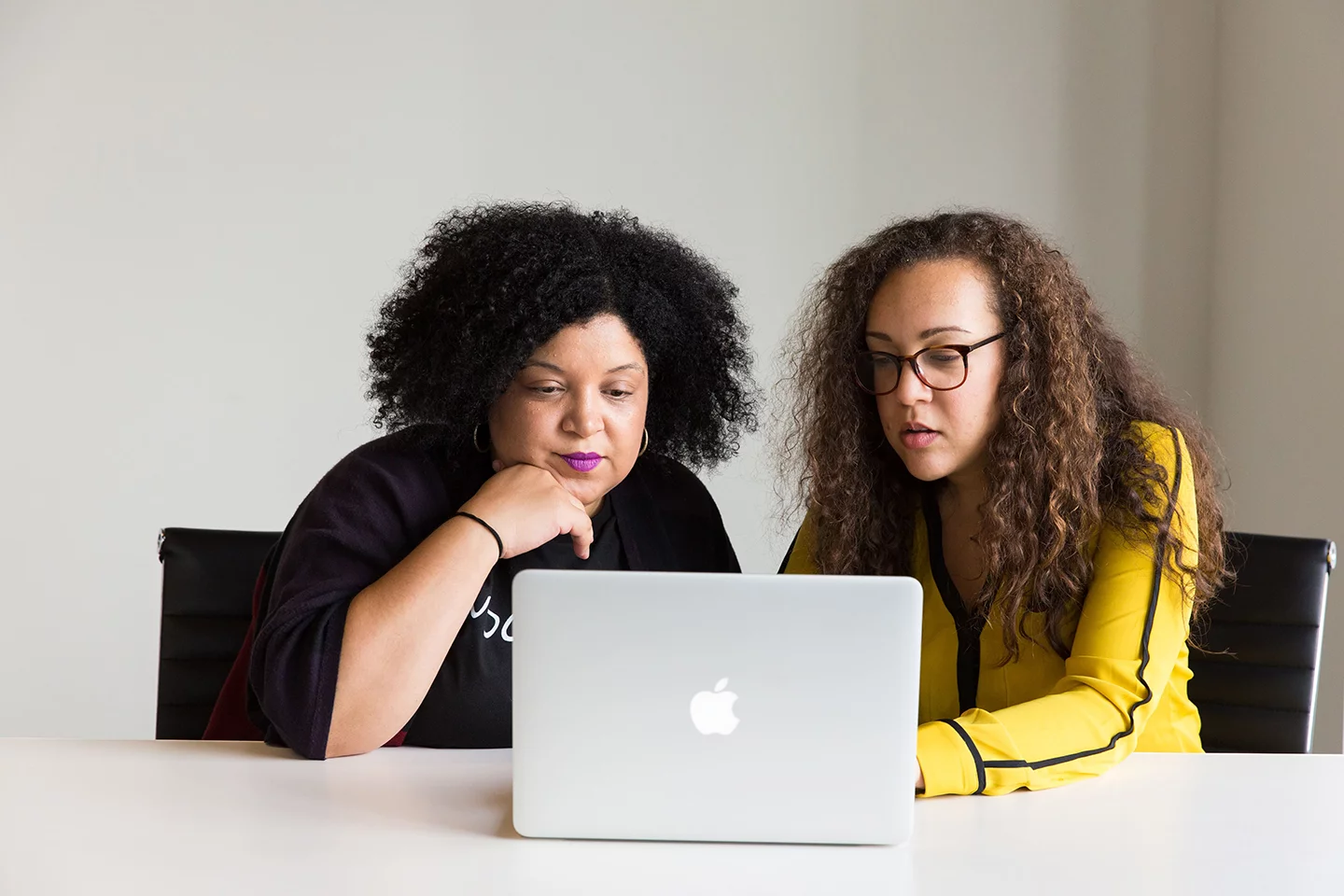Our weekly Future of Work Virtual Roundtable Series recently hosted Susan Schmidlkofer, Global Director of Diversity and Inclusion at UPS. In an insightful interactive session titled “Stronger United: Driving an Inclusive Culture and a Renewed Purpose,” Susan shared how the 113-year-old company is effectively practicing and planning diversity and inclusion initiatives within its diverse and dispersed workforce of approximately 500,000 people around the world, especially now as the company profile is raised as it plays a key role in helping to distribute our nation’s Covid-19 vaccinations.
Below is an excerpt of Susan’s presentation with some key takeaways about how a company’s brand should authentically align with its diversity, equity, and inclusion efforts. You can also watch the full session, including Susan experiencing a live Mursion demo, on our YouTube channel.
Join us for our upcoming Future of Work sessions by signing up here. And, to experience Mursion’s virtual reality simulations and see for yourself how this platform can support your own business to achieve its D&I and other business goals, schedule a demo today.
“I’m not here to say I know everything. It’s really to share some of my experiences being a long-time HR practitioner as well as moving into the, as we called it back then, the diversity and inclusion space. It’s called, D&I, I&D, diversity, equity, inclusion. For me, it’s all about people. It’s all about belonging.
For me, it all about people. It's all about belonging.
That’s the heart of everything is that we are all humans, and that need to be connected and belong is so critical, even more critical now in the year that we are having, and hopefully putting behind us soon and moving into a better one in 2021. I thought I would share some information that I have and just some of the things that I’m seeing, not just within UPS but outside of UPS, about inclusion and culture and purpose and brand.
Now, there are so many more opportunities to get reports and research and connect with individuals in the space, so many more built-out teams. I think that the greatest part about the space is so many people willing to share. There is some great research lately about purpose, culture, and brand. I really think it ties in a lot with what we’re doing in the diversity, inclusion, and equity space.
What the research talks about is that the purpose is why your organization does what it does, connecting the heads and hearts of its key stakeholders, culture, what your people experience working at your firm, what is done, what’s condoned, rewarded, encouraged, and finalized throughout the company and your brand, how your organization is viewed and perceived as a place to work, a provider of products and services, an investment vehicle, and a steward of the environments in which it operates. What I try to look at is how in this day and age, purpose, culture, and brand, how can I connect that and tie that to the work that I’m doing in the diversity, equity, inclusion space?
How in this day and age, purpose, culture, and brand, how can I connect that and tie that to the work that I'm doing in the diversity, equity, inclusion space?
We’ve focused a lot this year on our internal culture survey, which hones in on some of those key drivers of what makes people engaged, what drives discretionary effort and their intent to stay, what drives our business in serving our customers.
Companies, if you’re doing culture surveys, I think that’s really important to do, even just quick mini pulse ones throughout the year, just a couple of items to gauge how people are feeling. Really a lot of valuable data in that that can help drive some of your action plans. We’ve done so much more when it comes to social media engagement, talking about our brand.
We’ve focused on abilities versus disabilities, and employing people who have different needs, but figuring out what types of jobs that they can really excel in. We’re really proud of that in our communities.
Connecting Your Company’s Purpose With its D&I Goals
Our pride in getting it done radiates from us. We have a lot of pride at our organization, a lot of tenure, a lot of length of service. As we deliver what matters, we become a powerful force that moves the world forward. Really, what I’ve been doing in my space is, how do I connect our purpose as an organization with the work I’m doing now? I think what really connects our communities these days is the people’s stories and really, again, it’s not about the packages, it’s about what’s in them and what we’re doing and how we’re partnering with our people in our communities.
How do I connect our purpose as an organization with the work I'm doing now?
What matters depends on where you are in the world, but the opportunity to just expand and build that out and tie that into the DE&I work is something that I look forward to really moving into 2021 and beyond. I came across a quote that our CEO had said, and I think it really summed up our purpose that, ‘If you don’t have purpose, it’s hard to find passion.’ As we all know, if you don’t have passion, you will struggle to ignite transformative change. Our customers are changing, our competitors are changing and the rate of change is accelerating, we must change alongside them.
If you don't have purpose, it's hard to find passion.
I think that’s a great guiding message no matter what role you have within an organization, and whether you’re at UPS or where you are within your own company, everything is changing so quickly. We, like most other companies, are going through a lot of transformation. We just experienced it, we’re still in the middle of it from an HR standpoint. A lot of their functions are too. Our international teams that will be going through an international HR transformation in 2021 and beyond. How do we keep up with that? What fuels us? We really use our model of customer first, people-led, and innovation-driven to drive a lot of what we’re doing.
Any of the work that you do, if you can take a look at what your company’s mission and what your company’s values are and think of your work in that alignment, it’ll help drive a strategy that’s going to be supported at all levels of your organization.
What we found was our D&I initiatives were operating more so from our stakeholders, but more in silos than this connected wheel that talks about connecting our employees, our customers, communities, and suppliers. Those have always been the groups that we’ve centered a lot of the work that we do at UPS around, but we didn’t work as much together and really understand that there’s so much that we can do more collectively and there’s so much overlap in the work.
It’s about how do we build some of these things out together and not operate on our own, but more collectively to help serve our stakeholder groups. We have found that has really helped us and guide the advancements that we’ve made over the past several years.
Developing Inclusive Leaders
I think for where I am now with the level of importance is the talent management piece and driving inclusive leaders. I think that that is where we could get the most bang for our buck, from everything I see from looking at our metrics, from looking at feedback from our people, what’s important to them. It’s great when you’re doing all of these things and your community, you’re showing what the company values.
For most people in their career, whether they’ve been here 2 years or 26 years, they want to know what their career development is like, what type of opportunities they have, what type of development they can seek on their own, what type of development the company is going to provide for them. I think that looking at your talent pool, your recruiting, advancement, development, that whole piece of that talent life cycle is really critical for me to be engaged with our HR leaders that have that ownership, to work in tandem with them. Again, use some of those best practices that other organizations do and figure out where we can help them moving forward.
Then, from the inclusive leadership piece, it’s really about we’re doing a lot around unconscious bias. We launched bias training a lot ahead of where a lot of organizations were doing it, made it our own, and worked with an external consultant, but facilitate it internally, made it our own material, and had tremendous success with really helping leaders understand that we’re all biased. To be human is biased. What does that mean? How do you have these conversations within the workplace? How do you engage people?
To be human is to be biased.
How do you ask them how they are, where they’re from, what they’re feeling, what their background is, and opening up people to feel like they can do that within the workspace? That it’s not always easy, but it’s important. I think we saw that especially this year. We’ve been on a lot of different journey to, again, not only with the training piece, but with what we looked at again from a cultural leadership competency, how we built that into that framework to say, ‘What you do from driving an inclusive workforce is as important as you getting the business results.’
Achieving Company-Wide Buy-In
Every time you get an opportunity to prove what you’re doing makes a difference, really validates the work you’re doing. We have the engagement from the C-suite level that makes it a whole lot easier as well. You can define diversity, define inclusion, all the other things, a million different ways.
We probably, just like a lot of companies, haven’t done as great of a job of communicating everything we’ve done. I think that’s some of your own strategy too is bringing back those milestones. Back in 2017, I created a booklet internally to highlight that. The first African-American that we had on the board of directors at the C-suite level, the first woman CEO, those types of things. When you put that down and do that retrospective, it really helps people understand how far you’ve come. Again, the whole thing with the diversity, inclusion, equity efforts are this bar, this continuum just keeps going.
It’s just a matter of, do you feel like the people that you work with care, that your boss cares. Your relationship with your immediate management team is so important, so vital to you feeling connected to the work you do, just driving your discretionary effort and whether or not you want to stay with the company and grow with the company. You can work on your diversity, you can show all your numbers and show your improvement, but if they walk out the back door within a year being brought in, what does that do for you?
Do you feel like the people that you work with care, that your boss cares?
I think that’s the most important part is just reaching out to people, asking how they are, checking in with your people, knowing them, understanding them, being a mentor. Don’t let what’s going on right now prevent you from being able to do some different things and getting involved because every individual can make a difference. Measuring your success and your progress, putting things down. Now, that we’re starting 2021 goals, it’s asking each of your people to put one or two things down that they could do to help be more inclusive and holding yourself and them accountable to that. Just making that change over time. Again, I think that that’s the way we make progress and continue to move forward.”
Subscribe for the latest Mursion articles and updates.
By clicking the sign up button above, you consent to allow Mursion to store and process the personal information submitted above to provide you the content requested. View our Terms and Conditions.




